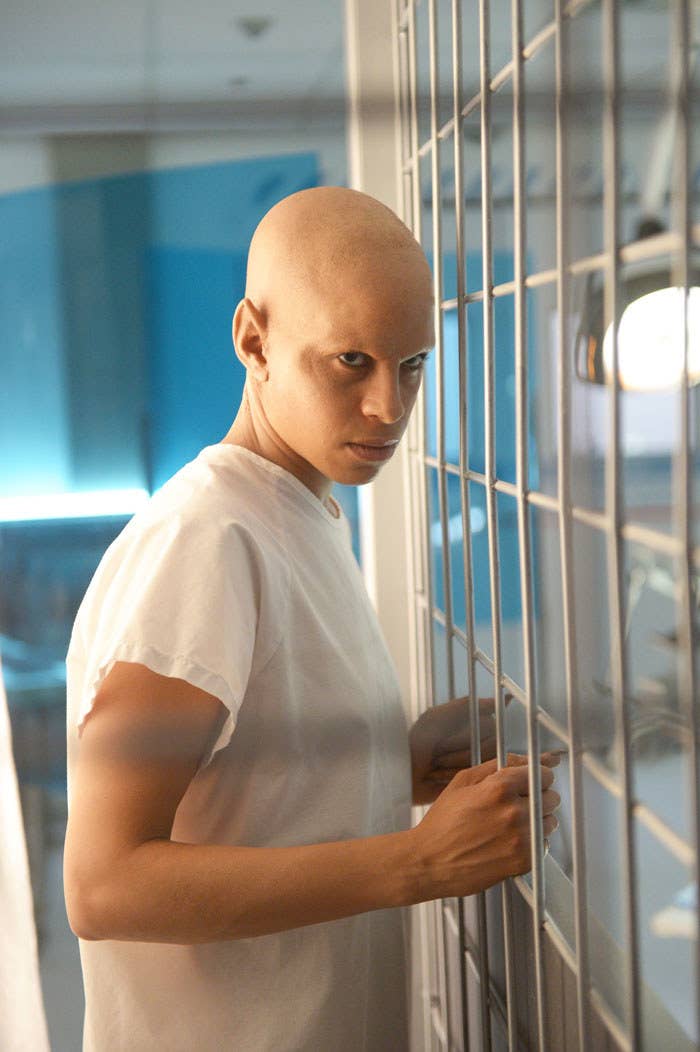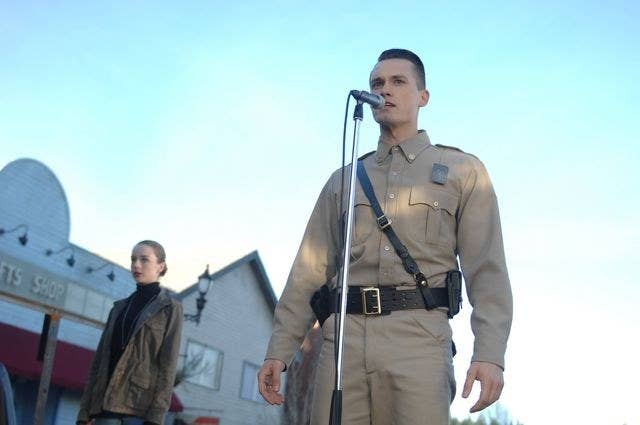
As Season 2 unfolds, the eponymous town on Wayward Pines is once again tearing itself apart under a hubristic male leader. However, the “monsters” outside the walls are becoming less monstrous and more likable — and, incidentally, they live in a matriarchy. In the series, a relatively small number of people spend 2,000 years in a state of suspended animation and wake up in the 4000s, where super-strong and seemingly vicious descendants of humans — the terrifying, aberrant “Abbies” — have inherited the earth all around their isolated community. In the July 6 episode, Margaret (Rochelle Okoye), the inhumanely detained Abby leader, outwitted her captors and executed her torturer in a move that was equally satisfying as an assassination plot and an act of revenge.
The Abbies previously served as an outward manifestation of Wayward Pines’ inner monstrosity. However, this season, Margaret reveals herself and all Abbies to be intelligent and willful; the humans who keep her and her brethren in small cages and subject them to painful experiments and death seem cruel, ruled by a brutish faith in their own moral superiority. “There are a lot of people who feel like they are on the Abbies' side,” showrunner Mark Friedman told BuzzFeed News in a phone interview July 6. “In ways we'll learn or see, they are more sophisticated than us.”
A running question this season, he said, is whether the Abbies’ society is more evolved than the humans’ and, as he phrased it, “Is it because a woman is running it?”
In Season 1, it seemed at first that female Abbies didn’t exist — that the monsters raging against the town were sexually monomorphic or no one had thought to write in ladies. Now that females are in charge, the Abbies offer a more perfect inverse of Wayward Pines itself: Outside the walls, a matriarchal society does not seek to impose its will on evolution or nature generally, while inside, entitled man-child Jason (Tom Stevens) imposes his will on everything, including reproduction.
Though Friedman said “toxic masculinity” was not a conscious theme in the series, he explained that “the men on this show haven't done well by humankind. That goes back to Pilcher” — the egomaniacal inventor who kidnapped people to populate his mad-science ark. “Arrogance to me is the best word to describe it, because it's a lack of collaboration, it's an assumption that you know best.”

Though the “human” side of Wayward Pines relies largely on male leads, Friedman, who is new to Season 2, took particular care to depict human female characters as well, down to a storyline about a girl’s first period. “When it was a world that's about whether you have choice in how you live your life and reproduction and all those kind of issues, it felt like it would be naive or insulting not to make the show revolve around women and women's issues,” he said, noting that his writers staff of five includes two women.
“You need women writers to write women characters,” he said. He gave Lucy’s (Emma Tremblay) menstruation storyline as one example. “I was deferential to the female writers when we break that story. That's an experience they had that I haven't. It would be naive on my part to impose, 'No, she's gotta do this or that,' because it's more important that we get it right. ... It's like any case with diversity: The last thing I want is a bunch of other Jewish guys from New Jersey. There are enough of those.”
In that spirit, establishing a matriarchy outside the walls of Wayward Pines felt more interesting and new to Friedman. The Abbies “were really portrayed in a kind of one-dimensional way in the first season, which was fine, but if we were gonna continue the story, we needed to learn more about their world, and then I think it made sense to all of us that the female component was something we really hadn't even touched on.” Thus, the future became female, he said. “We really did want to explore this year — certainly much more than the first season — this idea of whether mankind's time is up.”
